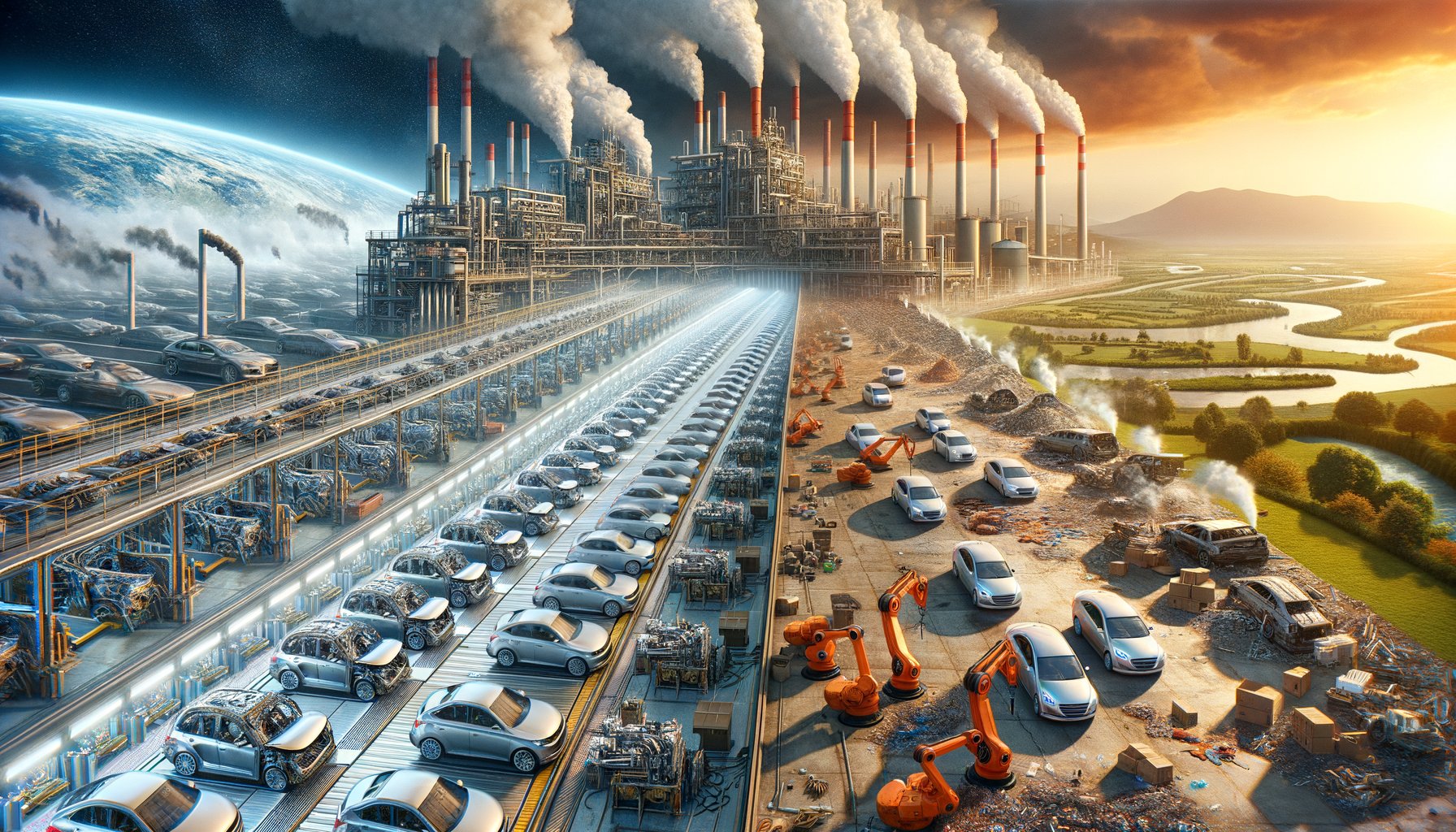Physical Address
304 North Cardinal St.
Dorchester Center, MA 02124
Physical Address
304 North Cardinal St.
Dorchester Center, MA 02124

As we traverse the 21st century, environmental sustainability has become a pivotal concern. One industry that significantly contributes to environmental degradation is automotive manufacturing. The car production process, from raw material extraction to end-of-life disposal, leaves an undeniable footprint on our planet. This article will delve into the various stages of car production and their respective environmental impacts.
The initial phase in car production involves mining and processing raw materials such as steel, aluminium, rubber, glass, and plastic. These resources are extracted from the earth through intensive mining operations which often result in land degradation, habitat destruction, and water pollution. Moreover, the energy-intensive processes required to refine these materials contribute significantly to greenhouse gas emissions.
As one of the primary components of cars, steel production is particularly impactful on the environment. Producing one tonne of steel generates almost two tonnes of carbon dioxide (CO2), making it a significant contributor to global warming. Additionally, steel production also results in air pollutants like sulphur dioxide (SO2) and nitrogen oxides (NOx), which can lead to acid rain and respiratory issues in humans.
Aluminium is another crucial material in car manufacturing due to its lightweight properties that enhance fuel efficiency. However, aluminium production is extremely energy-intensive. It requires large amounts of electricity for electrolysis during refining process — contributing heavily towards CO2 emissions.
The assembly stage involves constructing vehicles from processed materials — a task that requires substantial energy input. While many manufacturers have made strides towards more energy-efficient assembly lines, this phase still contributes a considerable amount of greenhouse gases. Additionally, the use of harmful chemicals and solvents in painting and finishing processes can lead to air and water pollution.
Once cars are assembled, they need to be transported to dealerships worldwide. This process often involves long-distance shipping, which contributes further to CO2 emissions. Moreover, transportation also presents risks of oil spills and other forms of pollution.
The environmental impact of a car does not end once it rolls off the assembly line. The usage phase is where cars contribute most significantly to environmental degradation. Fossil fuel-powered vehicles emit CO2, NOx, particulate matter, and other pollutants that contribute to climate change and air quality deterioration.
Fuel consumption is one of the most significant contributors to a vehicle’s environmental impact during its lifetime. Conventional petrol or diesel-powered vehicles emit substantial amounts of greenhouse gases every time they’re driven. These emissions contribute directly to global warming and climate change.
While electric vehicles (EVs) are touted as a ‘greener’ alternative due to their zero tailpipe emissions, their production process — particularly battery manufacturing — has substantial environmental implications. Battery production requires rare earth metals like lithium, cobalt, and nickel whose extraction often leads to water contamination and habitat destruction.
Finally, when a car reaches the end of its life cycle, disposing of it poses another set of environmental challenges. While many components can be recycled or reused, others like rubber tyres often end up in landfills or are incinerated — both processes having detrimental effects on the environment.
In conclusion,